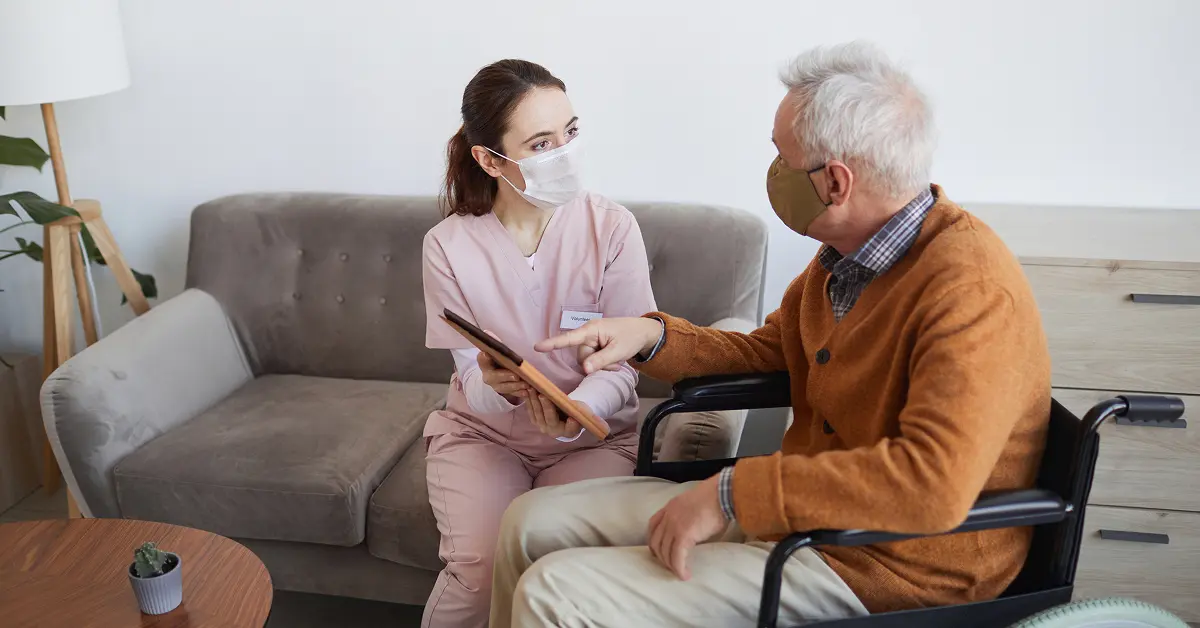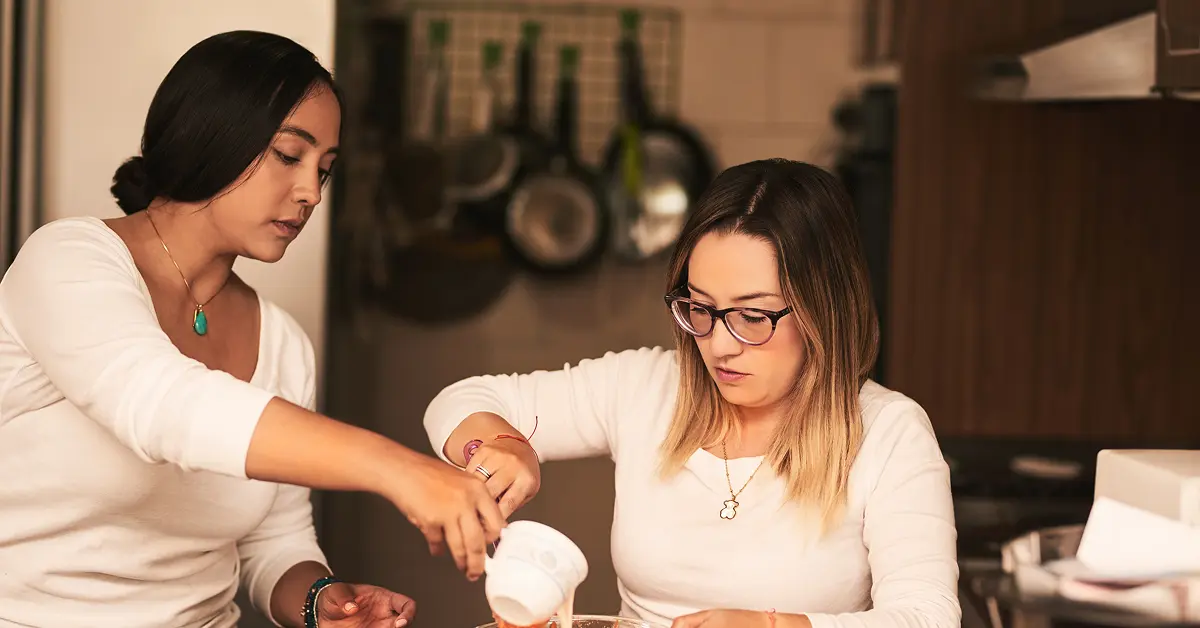As we grow older, our bodies naturally go through various changes, and joint pain is one of the most common complaints among ageing individuals. Arthritis, osteoporosis, and general wear and tear can severely limit mobility and impact daily life. However, with the right support system—especially from trained caregivers—managing age-related joint pain becomes easier and more effective. In India, where the joint family system is slowly giving way to nuclear families, professional caregiver support for Elderly Care Services is becoming a much-needed service.
This blog explores how caregivers assist in managing joint pain, the techniques they use, and the benefits of having trained help for ageing parents or grandparents dealing with such conditions.
Understanding Age-Related Joint Pain
Joint pain in the elderly can stem from various causes, such as:
- Osteoarthritis: The most common type, caused by the breakdown of cartilage.
- Rheumatoid Arthritis: An autoimmune disease that leads to joint inflammation.
- Gout: A form of arthritis caused by uric acid buildup.
- General stiffness and wear due to age.
Symptoms typically include swelling, stiffness, reduced flexibility, tenderness, and persistent pain, especially after periods of inactivity.
Why Caregiver Assistance Matters
Many elderly individuals are hesitant to express pain or avoid treatment due to fear of dependency. A professional caregiver brings empathy, medical training, and the ability to maintain daily routines tailored for comfort and mobility. Here’s how they make a difference:
Mobility Support and Fall Prevention
Caregivers are trained in safe mobility techniques and help seniors move around the home or outside with minimal risk. They:
- Assist with walking, using walkers or canes.
- Encourage slow and steady movements to avoid stress on joints.
- Help with stair climbing and getting in/out of bed or chairs.
- Ensure the home is free of obstacles that could lead to falls.
Daily Exercise and Physical Therapy
Joint pain improves significantly with consistent low-impact exercise. Caregivers can:
- Guide seniors through simple home-based exercises prescribed by physiotherapists.
- Encourage stretching and yoga practices suitable for older adults.
- Monitor balance exercises that improve posture and joint strength.
- Help with physiotherapy routines, whether in-home or at clinics.
Hot and Cold Therapy Management
Alternating between hot and cold packs is a widely recommended remedy for joint pain. Caregivers can assist by:
- Applying heat packs to relax stiff muscles.
- Using cold compresses to reduce inflammation after movement.
- Timing the therapies appropriately as per medical advice.
- Ensuring skin safety while applying these treatments.
Medication Monitoring and Administration
One of the key roles of a caregiver is to ensure that prescribed medications are taken correctly and on time. For joint pain, this may include:
- Anti-inflammatory drugs.
- Pain relievers or muscle relaxants.
- Supplements like calcium and Vitamin D.
- Joint health medications like glucosamine.
Nutritional Support for Joint Health
Diet plays a huge role in reducing inflammation and maintaining bone strength. Caregivers contribute by:
- Preparing meals rich in Omega-3 fatty acids (from fish, flax seeds).
- Including anti-inflammatory foods like turmeric, ginger, leafy greens, and berries.
- Reducing intake of processed foods, sugar, and trans fats.
- Ensuring hydration, which lubricates joints and maintains flexibility.
Massage and Comfort Therapies
Elderly individuals often benefit from gentle massage techniques. Caregivers trained in basic massage or who coordinate with a physiotherapist can:
- Offer light massages to increase circulation.
- Apply herbal oils or balms for relief.
- Create a comforting environment with music and warm lighting to relax the patient.
Emotional Support and Mental Wellness
Living with chronic joint pain can take a toll on emotional health. Caregivers act as companions, reducing feelings of loneliness and depression. They:
- Engage in conversations and light activities.
- Encourage hobbies like gardening, reading, or knitting.
- Support regular routines to maintain a sense of purpose and independence.
Monitoring and Reporting to Medical Professionals
Caregivers often serve as the bridge between the elderly person and their doctor. They:
- Maintain health records and pain diaries.
- Notice changes in pain levels or swelling.
- Communicate progress or issues to family and physicians.
- Arrange appointments and accompany the patient, if needed.
Creating a Joint-Friendly Home Environment
A few modifications in the living space can greatly reduce joint strain:
- Raised toilet seats and ergonomic chairs.
- Anti-slip mats and hand railings in bathrooms.
- Adjustable beds and support cushions.
- Well-lit pathways to reduce tripping risk.
Involving Family Members
While caregivers take the lead in daily care, involving family can make seniors feel more valued. Caregivers often:
- Educate family members on safe lifting techniques or exercise routines.
- Suggest changes to weekend plans to make them senior-friendly.
- Coordinate family bonding time that doesn’t overexert the elder.
Conclusion
Managing age-related joint pain is a journey that requires physical effort, medical attention, and emotional strength. Caregivers serve as pillars of support, enabling elderly individuals to live with dignity, reduced pain, and more independence. In the Indian context, where families are juggling multiple roles, having a professional caregiver ensures that seniors receive the focused and compassionate care they truly deserve.
Whether it's your ageing parents or grandparents, don’t let joint pain dictate their quality of life. With trained caregiver assistance, you can make every day more comfortable and active for your loved ones.
Need caregiver services in India for your elderly family member? Choose trained professionals who understand joint pain management and senior wellness. Your parents deserve the best.
Contents
- Understanding Age-Related Joint Pain
- Why Caregiver Assistance Matters
- Mobility Support and Fall Prevention
- Daily Exercise and Physical Therapy
- Hot and Cold Therapy Management
- Medication Monitoring and Administration
- Nutritional Support for Joint Health
- Massage and Comfort Therapies
- Emotional Support and Mental Wellness
- Monitoring and Reporting to Medical Professionals
- Creating a Joint-Friendly Home Environment
- Involving Family Members
- Conclusion
Our 24*7 services
Latest Posts
- What Is Respite Care and Why Is It Important
- Affordable home care for senior citizens in India
- Caring for Seniors with Dementia or Alzheimer's at Home
- Senior Caregiving A Guide for Every Family
- How to Write a Caregiver Resume That Gets You Hired
- How Care After Hospital Discharge Speeds Up Recovery at Home
- How to Get Home Health Care for Seniors Through Medicare
- What Does a Senior Citizen Caregiver Really Do at Home
- How to Care for Elderly Parents with Alzheimer’s or Dementia
- How to Get 24-Hour Care for Seniors at Home



